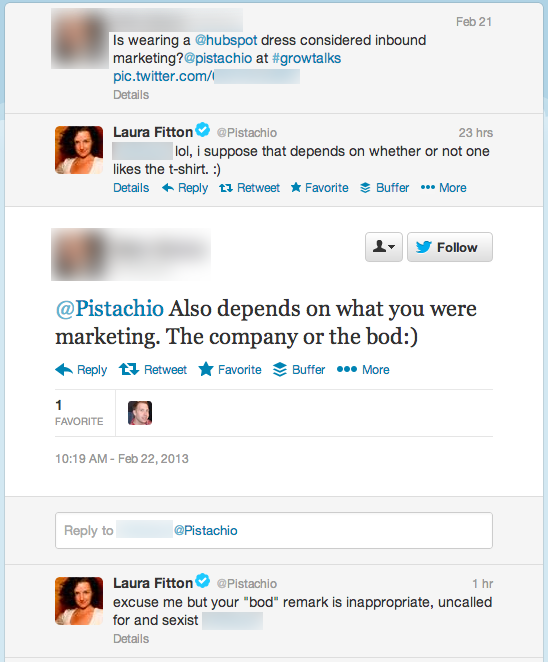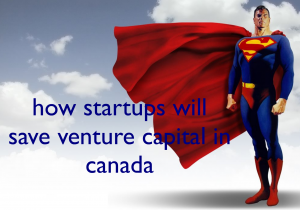Last week, I hosted GrowTalks in Toronto, a conference for entrepreneurs focused on metrics, marketing and growth. The conference brought an amazing set of speakers to Toronto. And personally I was excited to finally get a chance to hang out with Brant Cooper, someone I have been connected to digitally, but until last week had never met in person.
Then something happened after the conference, that put Toronto, our community and our values as Canadians in a very negative light. I am hoping that there is lesson, perhaps a “teachable moment“, around treating folks with respect and what we should do when we mess up.
Laura was wearing a dress with her company’s logo on it when she gave her talk. This exchange happened on Twitter:
My goal is not to vilify the individual but to highlight the subtle interactions that often happen in the community that can make it more closed and less approachable (this is not the first time we’ve had a similar conversation). The goal isn’t to ostracize or vilify the individual, so please don’t start a witch hunt.
I know this interaction does not represent what my Toronto startup community is all about. My community is generally respectful of people. I believe we are great hosts when folks from out of town visit to share their time, expertise and insight with us. My community understands people like Laura and Brant are rare and valuable and have a choice in how they invest their time and when they choose to invest it in us, we’re grateful.
But I also believe a community is defined by how it reacts when folks do things that fall outside of what the community defines as acceptable. After seeing this interaction I worried that unless someone from Toronto made it clear that this isn’t what we’re about, our public silence would be seen as a statement that we think it’s OK to be disrespectful to conference speakers (or heck, anyone, for that matter). I’d like Laura (and anyone else watching from the sidelines) to understand that we noticed, and we are appalled.
Which brings me to the second part of this teachable moment. None of us are perfect. I personally have a colorful history of amazing screw-ups. Miraculously, people forgive me. I think they forgive me because I let them know I’m not TRYING to be a jerk, but sometimes I hurt people anyway and if given the chance I will try hard not to do it again. They forgive me because I’m trying to be better.
If you were the Tweeter in this particular incident there are things you could do to avoid the inevitable backlash caused by your poor behavior. You could delete the Tweet. You could change your Twitter handle. You could remove your photo. But that doesn’t really convince anyone that you weren’t trying to be hurtful and it certainly doesn’t make Laura feel better. Apologizing does.
In the future I hope we treat our speakers with more respect and if we blow it, we have the good sense to say we’re sorry and try better next time.


 There are a lot of models that people throw around for how to build a strong startup community. There are a handful of types of players in each community, so there are many permutations of “who gets what” and how resources are moved around.
There are a lot of models that people throw around for how to build a strong startup community. There are a handful of types of players in each community, so there are many permutations of “who gets what” and how resources are moved around.